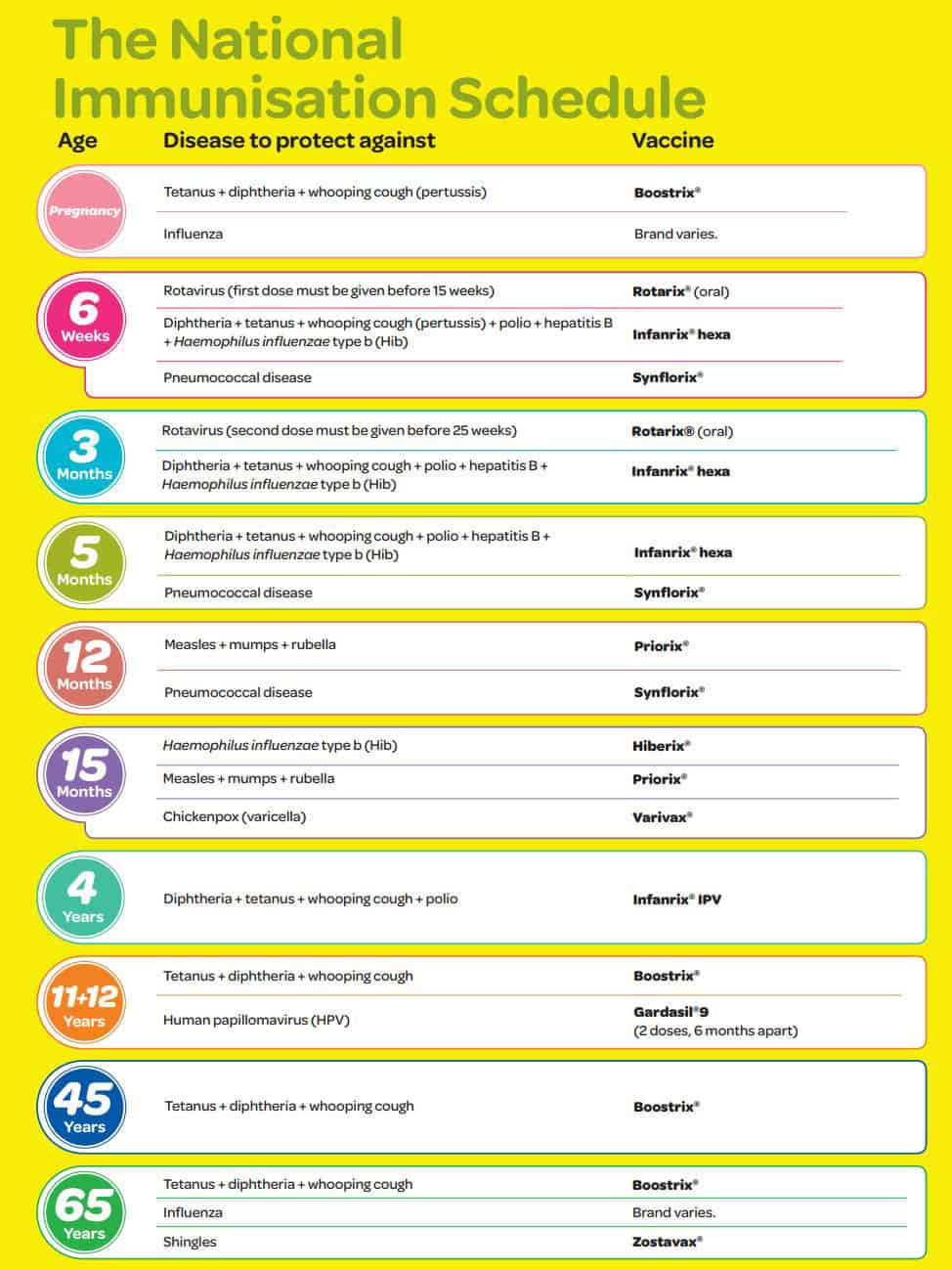Welcome to the World of Immunisations: Your Guide to the NZ Vaccine Schedule
Hey there, awesome parents! Embarking on the parenting journey is a roller coaster ride full of joys, challenges, and responsibilities. Among these responsibilities is ensuring the health and well-being of your little bundle of joy. Vaccinations play a crucial role in protecting our children against various infectious diseases. Today, we are diving into the New Zealand vaccine schedule to give you all the information you’ll need to navigate these critical health milestones.
Why Vaccinations are a Must for Your Kiwi Kids
Vaccinations are quite simply superheroes in the medical world, providing a shield against serious illnesses. They work by introducing a small, harmless piece of a disease-causing organism into the body, which trains the immune system to fight off the real deal should it ever encounter it. For parents in Aotearoa, following the NZ vaccine schedule is not just about keeping your own children safe; it’s about contributing to the broader community by achieving ‘herd immunity’.
The Early Bird Gets the Worm: The First Vaccines
Alright, let’s take flight and soar into the first stop on our vaccine journey! In New Zealand, your child’s vaccination journey begins right from birth. The very first vaccine given to a newborn is against Hepatitis B. This initial dose will be followed by a series of scheduled vaccinations that are provided free of charge under the National Immunisation Schedule, a programme funded by the government to ensure optimum health for all Kiwi children.
The Milestone Markers: Vaccination Schedule Breakdown
Understanding when each vaccination is due can seem daunting at first. But don’t fret! We’re going to break it down together!
- Birth: The Hepatitis B vaccine gets the ball rolling, protecting against a serious liver infection.
- 6 weeks: Whoa, time flies! At this stage, your baby will receive vaccines that protect against a whole platoon of diseases, including diphtheria, tetanus, whooping cough (pertussis), polio, Hib (Haemophilus influenzae type b), hepatitis B, and rotavirus.
- 3 months: Hold on tight as it’s time for baby’s second series of jabs for similar diseases, with added protection against rotavirus.
- 5 months: By now, your baby is getting the hang of this. They’ll receive their third series of immunisations, which is similar to the one at 3 months.
Just remember, consistency is key with vaccinations, as some of these jabs need to be given multiple times to build up full immunity.
Heading to School: The Next Chapter in the Vaccine Story
Fast forward a few years and your child is starting school – a major milestone! School-based vaccination programs ensure that children continue to be protected against diseases such as HPV (Human Papillomavirus) and boosters for tetanus, diphtheria, and whooping cough.
These school years are crucial for reinforcing the protective shield established during infancy. The Ministry of Health updates the vaccine schedule as needed, so be sure to check back for the latest updates or talk to your family healthcare provider.
Caring for Your Child Post-Vaccination
As a parent, caring for your child post-vaccination is equally important. Most children will experience mild reactions like soreness at the injection site or a low-grade fever. These are normal signs that the body is building protection. You can comfort your child with cuddles, a cool compress or suitable pain relief as advised by your healthcare provider.
Remember, each little ‘ouch’ is a step towards a healthier, happier future for your child – and I promise you, the teary eyes are short-lived but the protection they gain is long-term.
To sum it up, the NZ vaccine schedule is designed with your child’s health and development in mind. Keeping up with the recommended timeline of vaccinations is one of the most effective ways to ensure they grow up healthy and protected. Stay tuned for our next segment where we will discuss tips for making vaccination visits smoother, and how to handle any concerns or questions you may have about vaccines.
So, hug your little superheroes tight! You’re doing an incredible job, and we’re here to guide you every step of the way.

5 Things Parents Should Know When Preparing for the NZ Vaccine Schedule
Here’s the insider scoop – a special ‘5 Things to Know’ list curated just for you to make sure you’re ready for each visit to your trusted healthcare professional. Let’s get your tot geared up for their immunisation adventures!
1. Your Go-To Kit: The Immunisation Records
Keep a dedicated immunisation folder for your child’s health records. The National Immunisation Register (NIR) is pivotal, but having your own records at hand is super handy! Your Plunket book or Well Child Tamariki Ora health book is a great starting point to record all immunisations received.
– Actionable Tip:
After each vaccination, ensure that the healthcare provider updates your child’s health book or provides you with a record. Additionally, double-check that the information is entered into the NIR.
2. Pre-Vaccination Checklist: Happy, Healthy, and Ready to Go!
Having a cheerful and comfortable child on the day of vaccination can make a world of difference. Ensure they’re well-rested, fed, and hydrated.
– Actionable Tip:
Carry along a favorite toy or blanket to provide familiar comfort. Dress your baby or child in clothes that allow easy access to the upper arm or thigh, where the shot will be given.
3. The Appointment Calendar: Your Vaccine Date Book
We all know life can get hectic, but missing an immunisation date is a no-go. Set reminders on your phone, write the dates on the family calendar – whatever it takes to be there on time!
– Actionable Tip:
Book your next appointment before leaving the clinic and set a reminder a week in advance and then the day before. This dual reminder system can keep your schedule on track.
4. Knowledge Power-Up: Understand Each Vaccine
Educating yourself about each vaccine’s purpose, benefits, and potential side effects will put you in control and help mitigate any worries.
– Actionable Tip:
Chat with your GP or practice nurse, read reputable resources provided by the Ministry of Health, and check out the Immunisation Advisory Centre’s (IMAC) website for accurate information.
5. Post-Vaccination Care: Snuggles and Monitoring
While most vaccine reactions are mild, keep an eye on your child for any out-of-the-ordinary signs in the days following vaccination. Offering extra attention and love helps, too.
– Actionable Tip:
Prepare a quiet, comfortable space at home for post-vaccine snuggle time. Keep a children’s pain and fever medication at the ready, should your healthcare provider suggest its use.
Empowered with this handy guide, you’re now ready to face the vaccination schedule with confidence. Remember, it’s okay to feel a little nervous – that’s what being a super parent is all about, facing the tough stuff head-on for the sake of your superhero-in-training. So go ahead, mark your calendars, stock up on cuddles, and prepare to help your child through their very own immunisation journey!
Stay tuned as we continue to explore the world of Kiwi kids’ health together. Your child’s health is a precious treasure, and with the NZ vaccine schedule, you’re providing them with a shield that safeguards their future.
Warm regards and lots of health-happiness to you and your wh?nau. Let’s make every jab a step towards a thriving life for the little ones we love so much!
See more great Things to Do with Kids in New Zealand here. For more information see here
Disclaimer
The articles available via our website provide general information only and we strongly urge readers to exercise caution and conduct their own thorough research and fact-checking. The information presented should not be taken as absolute truth, and, to the maximum extent permitted by law, we will not be held liable for any inaccuracies or errors in the content. It is essential for individuals to independently verify and validate the information before making any decisions or taking any actions based on the articles.




